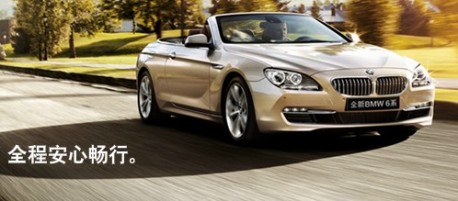BMW expects economic conditions to remain volatile until at least 2015 but reassured investors that it had made contingency plans and would react quickly in the unlikely event that the global economy fell back into recession.
The maker of BMW, Mini and Rolls-Royce cars reaffirmed its 2011 and 2012 targets and beat consensus profit forecasts in the third quarter thanks to continued strong demand in China and brisk sales of its 5 Series saloon and X3 sports utility vehicles.
“On the whole we’re confident but … also aware of the risks. We expect to see continued volatility due to the high level of national debt, the euro crisis and rising inflation,” Friedrich Eichiner, chief financial officer, said. “We will remain vigilant. We have explored various scenarios and made the necessary preparations.”
BMW and rivals Mercedes-Benz and Audi continue to enjoy buoyant sales in emerging markets in spite of macroeconomic uncertainty.
Norbert Reithofer, chief executive, said BMW’s factories were “chock-a-block full” and the company was on track to sell more than 1.6m vehicles this year, a new record.
BMW’s basemark assumption is that while growth will slow in 2012, the global economy will not experience another recession.
Mr Eichiner said sales growth would continue in China with premium carmakers outperforming the broader Chinese market in 2012. However, the high double-digit growth rates enjoyed by premium carmakers in China earlier this year are expected to weaken.
“The key question is … whether BMW’s key profit driver – China – will see volumes, mix and pricing remain at current extraordinary levels,” Max Warburton, at Bernstein Research, told clients.
BMW said it was well prepared for a more serious economic decline with €0.9bn in cash and cash equivalents and a €6bn five-year loan facility available if necessary.
The carmaker would respond to any drop in demand by rapidly cutting production, aided by flexible working time arrangements and temporary workers, Mr Eichiner said.
“For the next years until at least 2015 we are working on the assumption that this will be a volatile economic environment,” Mr Reithofer said. “Companies can only deal with volatile markets through flexibility.”
BMW, Germany’s top-selling premium carmaker, posted a profit margin in its automobile segment of 11.9 per cent, down from the 14.4 per cent figure reached in the second quarter. It said its return on sales would decline further in the fourth quarter due to the cost of launching new models and seasonal effects.
Although BMW’s third-quarter profit margin came in short of the 13.1 per cent margin achieved by Volkswagen’s Audi, it beat Mercedes-Benz’s 8 per cent return on sales. BMW is targeting an ebit margin of over 10 per cent in its car division this year.
The Munich-based carmaker increased revenues by 3.8 per cent to €16.5bn in the third quarter while earnings before interest and taxation climbed by 44 per cent to €1.7bn compared to the previous year, beating a €1.58bn average estimate compiled by Bloomberg. BMW’s shares rose 2.3 per cent to €59.28.
Via: FinancialTimes.



